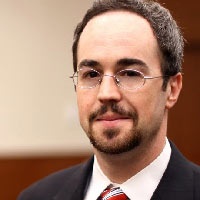 Harrisburg RICO Act Lawyers, Ohio
Harrisburg RICO Act Lawyers, Ohio
Sponsored Law Firm
-
 x
x

Click For More Info:
-
The Law Offices of Richard L. Cooper, P.A.
848 Brickell Avenue Suite 800 Miami, FL 33131» view mapDWI/DUI, Drug Trafficking, Felony Nationally Ranked Top 40 Under 40
With Richard L. Cooper you can expect a trusted confidant who will work diligently to fully understand your case and determine a road map to help you regain control of your life.
800-756-2781
Not enough matches for Harrisburg RICO Act lawyer.
Below are all Harrisburg Criminal lawyers.
Sponsored Lawyers
1-10 of 38 matches
Criminal, DUI-DWI, Felony, Traffic
Life can throw you a curveball. You need someone in your corner that understands good people can make mistakes. Michael also understands that good people are also often accused of something they simply did not do. Michael J. Hayes, Esq. knows all too well there are two sides to every story. Let Michael J. Hayes, Esq. represent your side and fight for your rights.
(more)Criminal
An experienced and accomplished legal advocate, Benjamin L. Luftman is a founding partner at Luftman, Heck & Associates and has practiced law for nine years. His sole practice areas are in criminal defense and traffic violations, having represented clients in cases ranging from the most serious felonies to minor traffic offenses, with a particular concentration in the area of OVI/DUI law.
(more)



 Richard L. Cooper Miami, FL
Richard L. Cooper Miami, FL AboutMiami Attorney at Law
AboutMiami Attorney at Law ServicesCriminal Defense
ServicesCriminal Defense


